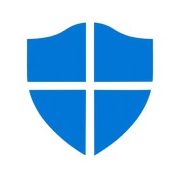How to choose AV software for Windows
The need to protect your Windows computer from all things bad is generally well understood these days. Almost everything we do on our PC these days has some kind of connection or interaction with the Internet. And unfortunately, there is a lot of malware, viruses, and ransomware online that can infect and harm your PC. The best protection is good antivirus software. But how do you choose AV software for Windows? Read on to see what is important in selecting the best PC protection.
Which aspects to consider when you choose AV software
Selecting the right AV software is more than just considering virus protection. For the right solution, it is important to consider multiple aspects.
Protection level
The most important aspect of AV software is what level of protection are you getting from the software. And this is not just about virus protection anymore. AV solutions offer protection against malware, ransomware, phishing, and viruses.
A firewall is used to scan incoming network traffic for bad stuff, while the antivirus software scans and safeguards your PC storage devices (disks, memory, etc). A firewall always protects your network connection in real-time, while the AV software can work both in real-time and on a scheduled basis.
For maximum protection, the AV software needs to block as many threats with its firewall as possible, and detect as many virus infections as possible. How do you know? Luckily there are organizations that perform regular tests and comparisons of AV software that help you find out what level of protection they offer. The best place to look for these tests is AV comparatives.
False positives
Yes, there is such a thing as false positives. This happens when the AV software decides something is a threat, while in reality is not. Big deal? Well, it can be, since this will result in software that you deliberately intend to use, and know is safe, being blocked by the AV software. This can happen both when trying to download a program and running a program.
So actually, the number of false positives is another factor to consider when choosing your AV software for Windows. Quite a few AV solutions that have a high protection level also have a high level of false positives.
Update frequency

To deal with such changes, AV software needs to be updated on a regular basis. Signatures that are used to detect viruses and malware are updated so that the AV software can detect, and deal with any new threats.
Performance
Normally when AV software is installed, the program will check daily for new updates on its online protection database. How often that database is updated though, varies per vendor.
For the best protection levels, it is critical that threats are caught as early as possible. Downloading a file and then checking it for a virus before executing (or opening) the file is not enough anymore. There are advanced threats that need to be found and blocked before they enter your system. Examples are files infected with ransomware or program updates that are executed automatically.
That means that the AV software runs at a system level to ensure it has early access, and sufficient access, to deal with these threats. Firewalls and real-time protection are running continuously to safeguard your system.
This is where the performance of the AV software is important. You do not want to wait longer for your download than required. And if you are streaming from the Internet, or participating in online gaming, delays are not welcome. Copying a file, moving a file, and opening a file, all are monitored by your security solution.
So, make sure to check out the latest performance test for AV software as well before choosing your AV software.
Reputation
Like all software vendors and software products, antivirus software programs also have a history and a reputation. Company size, time in existence, number of customers using the product, good news, and bad news, it can all be used to determine what solution is best for you.
Vendors of antivirus software are based and originate in different parts of the world. So, requirements and compliance with laws regarding privacy and data protection can vary. How strong is government influence? These and other aspects should be considered if you select protection software.
A few examples:
The Avast scandal about acquiring too much user data and using it in an unethical way.
Kaspersky is a Russian-owned company where the owner refused to condemn the Ukraine invasion by Russia. It is understandable that they want to try and be neutral considering their government contracts, but do you as a user want to support such a company? The German federal office for information security even issued a warning about the risks of the Kaspersky software being abused.
The use of an option to scan HTTPS network traffic caused issues with antivirus solutions that use HTTPS interception. HTTPS is already encrypted, so any intervention reduces the security level.
In looking at the reputation, also check out any reviews you can find regarding the vendor’s customer support. If you need help, you want to be able to contact the vendor and get a reply. Bigger, more established companies tend to have bigger support departments. That however does not guarantee good response times or adequate assistance.
Licensing options
Do consider that AV software is a competitive market space. There are many companies offering protection solutions. To stand out and increase their user base, they can offer free versions or an initial discount.
Don’t rely on just the features of various versions presented on commercial pages, but take a moment to read the end user license agreement for the product.
Be sure to check the terms regarding:
- The duration of the free period.
- The licensing period you commit to at which rate.
- How many devices you can use the software on. Can you deactivate the software and activate it on a different device?
- Which types of devices are supported. If you only use Windows, you do not need mobile phone support.
- Renewal terms. Automatic or manual, and what is the rate.
A quick tip here: renewal is where software companies make money. Once a user chooses an antivirus solution, they tend to auto-renew and not re-evaluate again. Even if you are happy with your protection software, check the auto-renewal price. In many cases, it is more cost-efficient to not auto-renew. In most cases, the vendor will offer you a new discounted deal close to license expiration. I have seen savings of more than 50% in such scenarios! Manual renewal also enables you to use discount coupons (again).
Features
When it comes to features, AV software has grown beyond the initial protection options. But do you need all features? Have a critical look at what is included in the AV software. If something is not required, it should not be considered.
Apart from unnecessary features, there can also be overlap with other software. If you already have a VPN solution, do you need to also have it present in the AV software?
Here is a list of features that can be present in other software solutions (either Windows itself, or third-party solutions).
- Parental Controls
- VPN
- Password manager
- Device access protection (microphone, webcam)
- Cloud backup
- Performance optimization
- Browser extensions
- File shredder (completely erase files)
In some cases, features are included by default, while in other cases they need to be activated and paid for separately.
And if you do choose a product that has features you do not need can you fully disable them? Does it show popups to remind you to upgrade the software for more options?
Privacy considerations

But in the process of protecting your Windows PC, AV software also has access to a lot of information. Programs that you execute will be monitored to make sure they are safe, your Internet traffic is analyzed to protect you from online threats, and files might even get uploaded to the AV servers for detailed analysis of threats.
You trust that this data is not collected and misused by the AV software vendors. And this is something you cannot take for granted. It pays off to check the privacy policies for the AV products to make sure that there is no mention of using your data for any other (commercial) purpose. AVG and Avast both have a tarnished history here.
I would definitely recommend not using an AV solution that decrypts HTTPS web traffic or at least making sure there is an option to disable the HTTP scanning feature.
As mentioned in the reputation section, you want to consider where the main office of the software vendor is located. Are they going to be susceptible to pressure from governments to cooperate in providing private data? Would you want to use a Russian or Chinese AV solution?
The default option: Microsoft Defender
With the installation of Windows Microsoft also installs their security software, Defender. As a result, most people use this protection software since it is included with the operating system at no extra cost.
It does seem a little like Internet Explorer again though. Bundled with the operating system, it was the default choice for most users. But it was not the best. After Firefox and later Chrome became available, they became widely adopted, and IE was often only used out of necessity or unfamiliarity with other solutions.
And who is using the Windows default video and graphics programs? For anything serious, people use third-party solutions that are created by companies that are focused on a specific solution. E.g. Adobe Photoshop for photo editing, and Pinnacle Studio for video editing, to mention some examples.
Apart from these considerations, Microsoft also has had its share of negative experiences with the Defender software. Flagging Chrome updates as suspicious, Defender for Endpoint causing issues with Windows 10 20H2 clients, being a resource-intensive solution according to the latest AV performance tests. The performance problem with Microsoft Defender seems to be worst on Intel based systems.
So, even though it is the default option, don’t take it for granted. If you want a free (well, you pay for it through the Windows license itself) solution, Defender is certainly an option. Just make it a deliberate choice rather than accepting a default.
Conclusion – choose AV software wisely
So how do you choose your AV software for Windows? The best answer is to be thorough! Spend a little time on checking what solution offers good protection, does not include a lot of options that you do not use, and is a cost-effective option for you.
AV software should protect your PC from threats, period. Any extra features are often not required, nor desirable. Real-time protection should really be the most important aspect to consider.
Most users will stay with their selected AV software for a long period, so making a well-researched choice is worth it. Hopefully, this article has helped you in making the choice!
Personal choice
My personal choice at the moment is Norton 360. In the past, I started disliking both McAfee and Symantec since their AV solutions became bigger and bigger and had a bad influence on system performance. Luckily, that has improved again over the years. They still have too many features in their product, but since I can disable these for me undesirable options, I am okay with it. I would certainly stay away from solutions that install extra software (bundles).



Thank you. It works.
@Fritz Liessling - Thank you for your feedback. I understand that you are looking for other resolutions, but within Windows…
Although the answer to this question is correct, it is really a cop-out answer. It's easy enough to find answers…
To the pcauthorities.com administrator, You always provide useful links and resources.
???? ?? ??? The Last of us